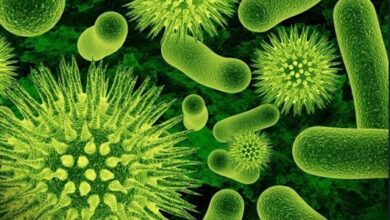Difference between fruit and vegetables Similarities and FAQs
Fruit and Vegetables
In this article we will provide you the Difference between fruit and vegetables Similarities and FAQs.
What does fruit mean?
The fruit is a food obtained from trees, shrubs and herbaceous plants belonging to the angiosperm family. Fruits are rich in nutrients such as vitamins, minerals and antioxidants that contribute to improving our health. Generally, these are foods with excellent flavor that provide us with vitality and energy to face the day. In addition, regular consumption of fruits helps prevent chronic diseases such as cancer or type 2 diabetes. Due to their culinary versatility, they can also be used to prepare delicious desserts or the main ingredient in refreshing salads. To enjoy all the benefits that the fruit offers, it is important to consume it fresh and even with its skin so as not to lose its nutritional properties.
What does vegetable mean?
Vegetables are a group of foods that are characterized by being edible and composed mainly of leaves, stems and roots . It is made up mostly of herbaceous plants belonging to the family of the botanical genus ?Chenopodiaceae? or also called vegetables. These are foods rich in nutrients with few calories and fat, which makes them especially interesting for maintaining a balanced diet. Among the most popular types of vegetables are broccoli, cauliflower, cabbage, tomatoes, carrots and celery; However, there are many varieties available to consume raw or cooked. Vegetables are undoubtedly a healthy and important way to obtain vitamins and minerals necessary for our human body.
Similarities between fruit and vegetables
Both words refer to foods that are commonly consumed in the human diet. The main difference between them is that fruits are foods obtained from flowering plants, while vegetables come from other parts of the same plant, such as leaves, stems and roots. This also means that there is a significant contrast in nutritional content between fruits and vegetables , as each has its own unique set of nutrients. However, both can provide antioxidants to help prevent chronic and inflammatory diseases. Therefore, both are equally important to stay healthy if we include them daily in our diet.
Differences between fruit and vegetables
Fruits and vegetables are nutrient-dense foods that should be included in a healthy diet . Both contain vitamins, minerals and fiber, but there are significant differences. Fruits generally have more natural sugars than vegetables. In most cases, the recommended daily intake is 2-4 servings of fruit and 3-5 servings of vegetables. The fruits are also sweeter and are usually eaten raw or cooked to make juices or jams; while many vegetables are eaten raw or boiled. Furthermore, although both vegetable groups help keep us healthy, there are certain types of fruit with beneficial properties to combat serious diseases such as cancer thanks to their natural antioxidants.
Frequent questions about fruit and vegetables
What are the fruits that exist?
The fruits that exist are: apple, banana, pear, orange, grape, kiwi, watermelon, melon, lemon, prune.
What does the word fruit mean?
Fruit refers to a variety of sweet or savory foods that contain seeds and are generally used as desserts, pickles, or in salads. Fruits typically have a sweet and/or sour flavor, depending on the type.
What is fruit and what is it for?
Fruit is a natural food, produced by flowering plants. Fruits are rich in nutrients and vitamins essential for the proper functioning of the body, which makes them an important source of energy. They contain healthy carbohydrates such as fiber, as well as minerals and essential fatty acids. In addition, they contain antioxidants that help protect the body against the harmful effects of free radicals. Fruits also provide a lot of water to the human body and can help reduce the risk of developing different chronic health problems, including type 2 diabetes, high blood pressure and cardiovascular diseases.
How do you say fruit or fruit?
Fruit or fruit is said “fructo” in Spanish.
What are the vegetables there?
Common vegetables include: cucumbers, tomatoes, zucchini, artichokes, eggplant, asparagus, celery, garlic, onion and leek. There are also a variety of other less common vegetables found in many supermarkets such as wild radishes and watercress.
What are vegetables?
Vegetables are nutritious foods that come from plants, such as asparagus, cauliflower, broccoli, and carrots. They are often associated with being healthy due to their nutrient and fiber content.
What is a vegetable and what is not?
Vegetables are foods that are grown in the soil and contain many vitamins, minerals and fiber. Greens include vegetables such as lettuce, kale, peppers, broccoli, cauliflower, and squash. They are not vegetables: meat, fruits or dairy products.
When is it a vegetable?
Vegetable is a general term for any edible plant consumed as part of the human diet. These include vegetables such as fruits, greens, herbs, and some grains. Most vegetables are rich in healthy nutrients and can be consumed unprocessed or cooked.




